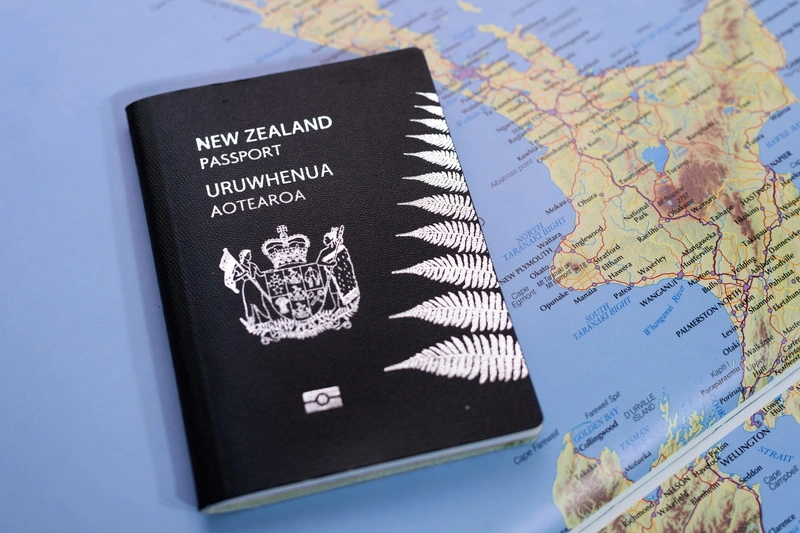
Why should you study in New Zealand, Australia or Canada?
When you study in New Zealand, Australia, and Canada, you can be assured of gaining a globally recognised qualification from highly reputed education providers who maintain extremely high quality standards.
Educational providers in New Zealand, Australia, and Canada offer you a wide range of tertiary study programs at both undergraduate and postgraduate levels. You can be assured that you will be able to find a suitable qualification or program of study of your own choice in these countries.
Being multicultural countries, New Zealand, Australia, and Canada can boast of having migrants from 100+ countries living there. When you study in these countries, you meet other students, teachers, and people from across the world which gives you the exposure to people from diverse cultures and ethnicities. It prepares you for diversity and inclusivity which you will encounter when you start working in a multicultural workplace environment.
The teaching (and learning) styles used in New Zealand, Australia, and Canada are quite different from the conventional teaching styles used in most countries. For starters, the focus is on gaining practical transferable skills (instead of just classroom knowledge) which you will need when you take up a job. To achieve this, the teaching would be done using an optimised mix of classroom lectures, group activities, periodic assignments, regular assessments, research work, industry projects, internships, and examination, which will all earn you a certain weightage of score towards the final GPA.


What are the enrolment criteria and student visa eligibility requirements in
New Zealand, Australia, or Canada?
To get enrolment in a suitable program, you must have excellent English Language standard and must have high GPA score in your last program of study. You will be required to pass an English language test (such as IELTS, PTE, or TOEFL) with high scores.
For the grant of the student visa, you must provide verifiable evidence of sufficient funds for the tuition fee costs, annual maintenance costs, and repatriation costs, which must have been legally obtained and held in a financial institution for a minimum period of time. The source of the funds could be from own savings, parents, bank education loan, or an eligible sponsor.
You must also meet the standard Health and Character requirements for student applicants.
You must be a genuine or bonafide student applicant, who has genuine intentions to complete a qualification. You must be able to explain how the program of study will benefit you upon completion. Also, you must have strong incentive to return to your home country after completing your study. This would be assessed quite differently in New Zealand, Australia, and Canada.
It is to be noted that the eligibility criteria for student visas or permits are very different for New Zealand, Australia, and Canada. As such, meeting the eligibility criteria could differ from country to country, depending on your personal circumstances.

Can you work part-time while you study in New Zealand, Australia, or Canada?
As a full-time international student in New Zealand, Australia, and Canada you will be allowed to work part-time during the academic year (mostly up to 20 hours a week, but can be higher for some students in some of these countries, depending on when you started your studies), and unlimited hours during your school vacations and semester breaks.
This is a great way for you to gain local work experience, practice English, and earn money. More importantly, it helps you to explore the local job market relevant to your qualification, occupation, and industry, which could lead you towards skilled job offers, which would be necessary if you plan to settle down in these countries as a permanent resident.

What are the visa options for you after completing your studies in New Zealand, Australia, or Canada?
Upon successful completion of your tertiary qualification in New Zealand, Australia, and Canada, you might be eligible for the grant of a post study work visa or permit of 1-4 years duration, depending upon the level of qualification, duration, program of study, etc. The rules for the post study work visas or permits are quite different for New Zealand, or Australia, or Canada.
If your ultimate goal is to become a "permanent residence" of that country, the post-study work visas and permits will give you the right opportunity to work towards and achieve it by finding a job relevant to your qualification and occupation. Over time, it could lead you towards skilled job offers with higher salaries that meet the minimum eligibility threshold that you might be required to meet. Again, the specifics of these will be very different for New Zealand, or Australia, or Canada.
You might be eligible for further skilled work visas and permits subject to you meeting the relevant eligibility criteria. If eligible, your partner/spouse and dependent children could also be granted relevant visas along with you as a family unit.

After completing your studies, is there a residence pathway for you in New Zealand, Australia, or Canada?
Skilled Residence is a very complex immigration law matter.
If you decide to use our professional services to apply for your student visa for New Zealand, or Australia, or Canada, our licensed immigration consultants will chart a pathway to future work and residence visas for you in the country where you decide to migrate, based on your qualifications, skills, experience, occupation, industry, etc, while ensuring that your skills and occupation are in demand in that country.
We start by setting the residence goal that you want to achieve in a realistic timeframe. Then we start planning your journey backwards through the pathway of skilled jobs, work visas, internship, etc and it will take you to the initial student visa stage. Your pathway to residence itinerary will be ready with guiding goalposts along the way, along with our expert immigration advice available during your challenging pathway to residence.
These topics will be discussed by our licensed immigration consultants during the initial consultation.



